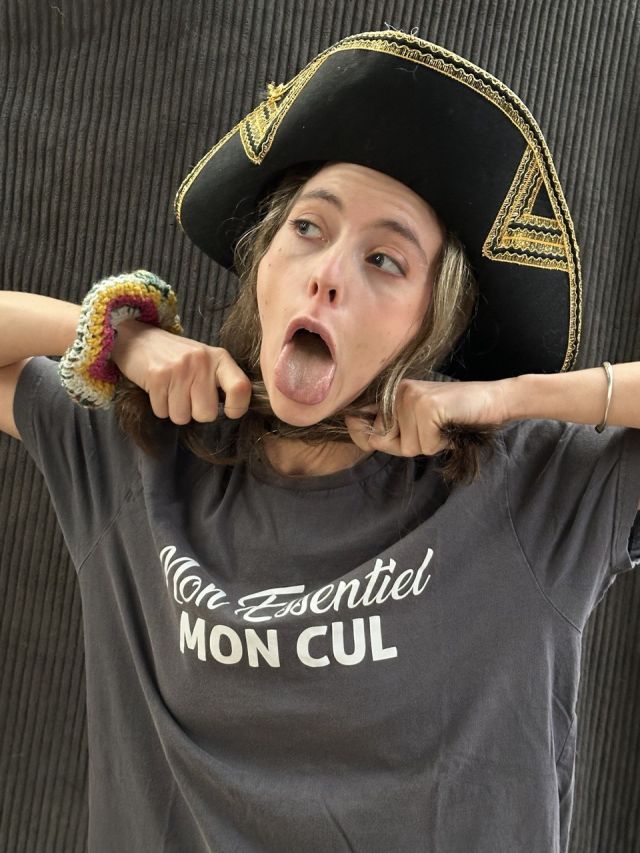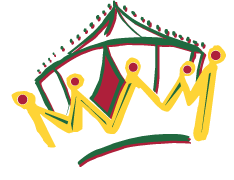The company-
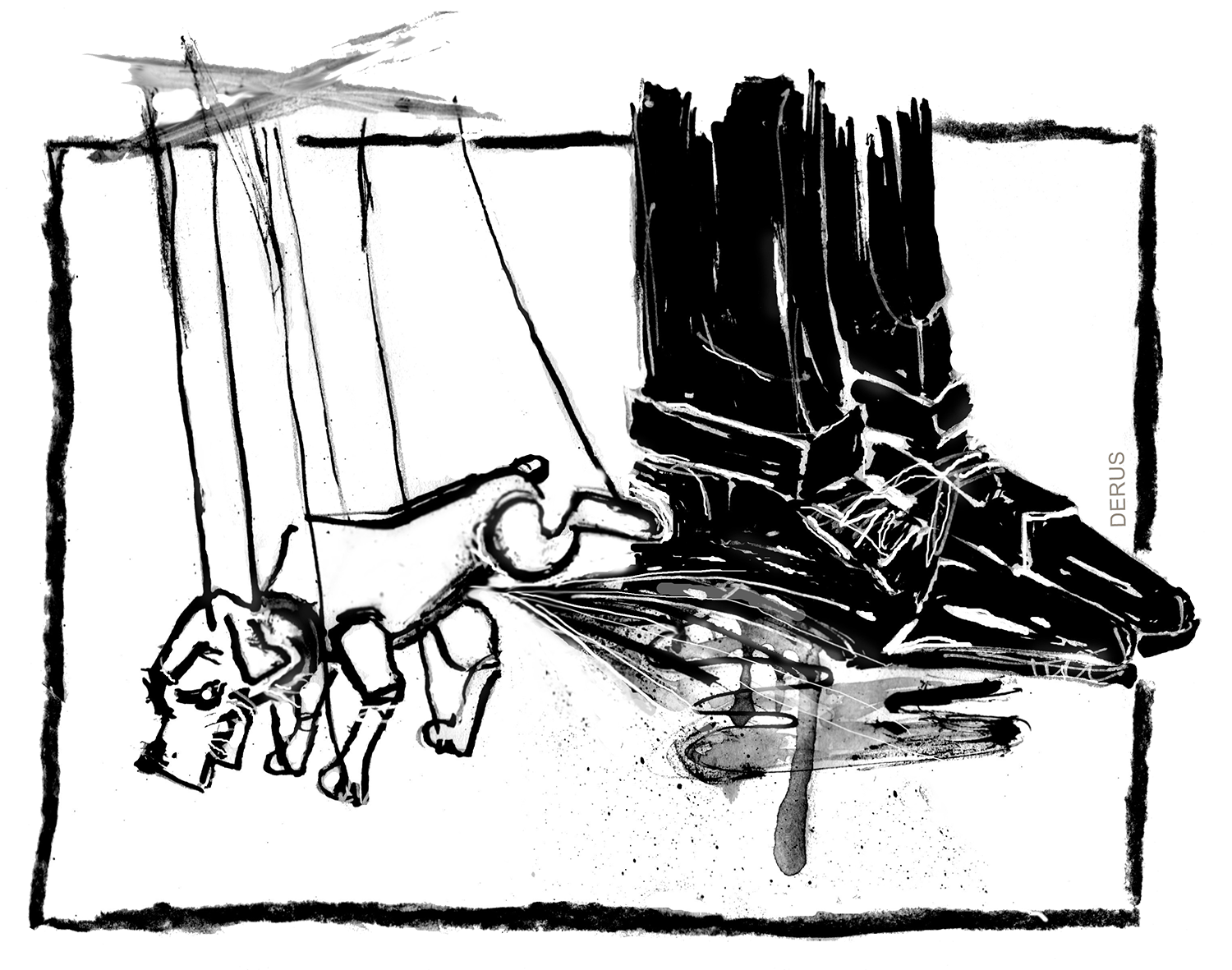
Presentation -
Let me introduce you to Les Royales Marionnettes...
By Didier Balsaux, the artistic director of the company.**
The company was founded in 1941, on the heights of Liège, in Belgium. José Maquet, its founder, then 14 years old, set up his Liège-style puppet theatre in a garage. In 1944, given the extent of the damage caused by Allied bombings and then by the V1 and V2 strikes, part of the population took refuge in shelters. It was there that José decided to go and perform his shows for tips. This is how the company became itinerant and acquired its street theatre know-how.
José never attended drama school. He performed with Liège-style puppets, a form born in the mid-19th century in the working-class districts of the city. Like Guignol or Punch, Tchantchès, the popular hero of Liège puppet theatre, is a miner who defends the weak and the oppressed. But Liège puppet theatre, like its cousins, was considered “amateur,” “vulgar,” “primitive,” and “traditional.” One could add “popular,” and that would sum up the contempt that drove my wife and me to take over the company in 1991.
At the time, José received from King Baudouin the title of “Royal,” granted to associations with 50 years of existence.
I was 23, and since the age of 9 I had been performing as a volunteer at the Tchantchès Museum, another Liège puppet theatre. My father, a steelworker, was drowning in the steel crisis. He was sinking slowly into poverty, and the poorer he became, the more he was despised. As for me, I channelled my anger by writing plays and studying to become a specialised educator.
In 1991, José offered me the chance to take over his company. The opportunity to perform traditional puppet theatre in the streets appeared to me as a coherent political act. Claire, my wife, fortunately decided to follow me on this adventure.
We held on tight to become professionals, but we quickly understood that we would first have to wash away the disgrace of an art form considered nothing more than a “popular” relic for uneducated amateurs, and fight the prejudices weighing more generally on puppetry and street theatre.
We began sharpening our arguments: etymologically, culture allows minds to become fertile, and entertainment creates diversion. Yet diversion can be used as a technique to create culture, as master Chaplin demonstrated. Popular art exists. It conveys cultures, languages, and traditions across all areas of everyday life, and above all, it allows audiences to identify with it. It is a powerful tool for producing culture. And despising this tool by reducing it to mere entertainment for “ignoramuses” is an insult to the people and to their cultural specificities.
Of course, to receive our “safe to consume” stamp, arguments about cultural policies were not enough. It was essential that cultural heritage, if meant to stay alive, be rooted in its own era. So thank you to modern popular language, thank you to the directors and artistic partners who accompany us and help us challenge traditions, thank you to our politicians for continuing to give us reasons to keep contestation alive through popular heroes. And thank you to my worker father who passed on to me his love for manual labour… I carve my puppets out of linden wood, inspired both by traditional methods, modern graphic codes, and other European forms of rod puppetry. I create my sets by drawing on contemporary artistic and scenographic styles. And then Claire had to give a solid administrative framework to my winding path.
Since 2000, Les Royales Marionnettes have been based in a warehouse located in a small village in Walloon Brabant, Belgium. The team of five permanent staff members works there on producing shows and running the company. It is where the woodworking, sculpture, and metalworking workshops are located, as well as the office, equipment storage, and the 300 puppets accumulated over time. It is also where our big top is set up, where we perform and occasionally host other shows.
Liège puppet theatre saved me. I was lucky enough to grow up in a bare-bones puppet theatre. I saw Tchantchès keep his cap on while speaking informally to the emperor, while my poor father lowered his gaze, cap on his knees, before those who believed they had the right to lecture him. I received this popular education in which an “oufti valet,” a Jupiler, the poetry of the river, the tales and legends of Wallonia, street singers, cûtes peures, bouquêtes, boulets au sirop, the guardians of roadside shrines and the feast of August 15 all formed part of my integration into the society of people of my condition. Tchantchès saved me; he took me in his arms, he was my first toy. Thanks to my little puppets, I reinvented the world, I avenged my father. Then, with Claire, we plunged headfirst into the puppeteer's trade. I flourished. I raised my voice for the causes I defend, we built our home, raised our children, and travelled the roads with our shows.
I performed with Tchantchès before three hundred overexcited children in a slum in Madagascar. I held in my arms a mother in tears after a show where she heard her autistic son's voice for the first time. I received the thanks of a grandmother attending a puppet show for the first time. I saw audiences of migrants, bourgeois, suburbanites, believers, elderly people, children, homeless people, and farmers come together before Tchantchès. I saw the eyes of Palestinian children light up before their own Arab Tchantchès — integrated into their shows under the name Zareef by a company we support. Tchantchès did not imprison me in the island of Outremeuse; he opened me to the world.
For those who like references, shall I give you a bit more? The awards at the Huy youth festival, the list of festivals, the press reviews? Honestly, I would rather you discover our work and judge it for yourself.
The team -
-
Didier Balsaux
Artistic Director (Ogre with Cannibal Tendencies)
He’s the head of the company and the main actor in the shows. He has a bad temper and swears like a sailor, but he sculpts the puppets and writes the performances. Plus, he’s the boss, so we have to keep him...
didier[AT]lesroyalesmarionnettes.be
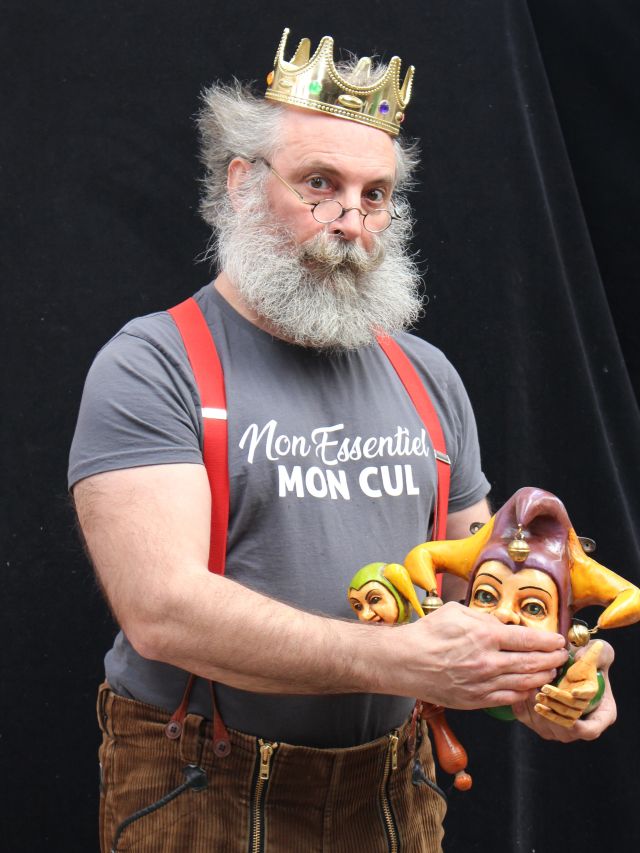
-
Claire Willot
Administrative Director (Omnivore with a Skunk Inclination)
More than just working in the shadows, she IS the shadow of the company.
claire[AT]lesroyalesmarionnettes.be
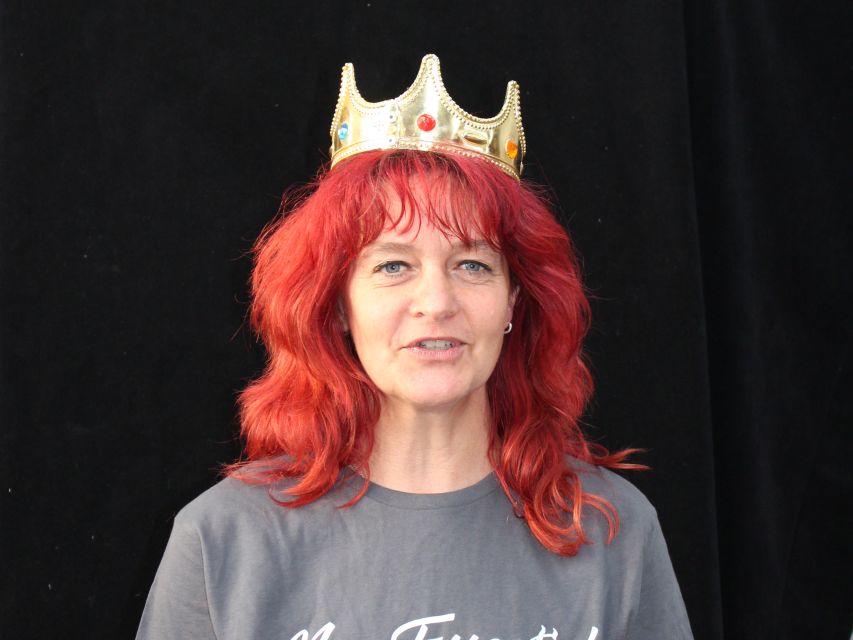
-
Adrien Balsaux
Workshop Manager (Frugal Omnivore with a Weakness for chocolate spread)
He’s the XXL Swiss Army knife of the company, and for a hammer in love with a nail, he prefers finesse over force.
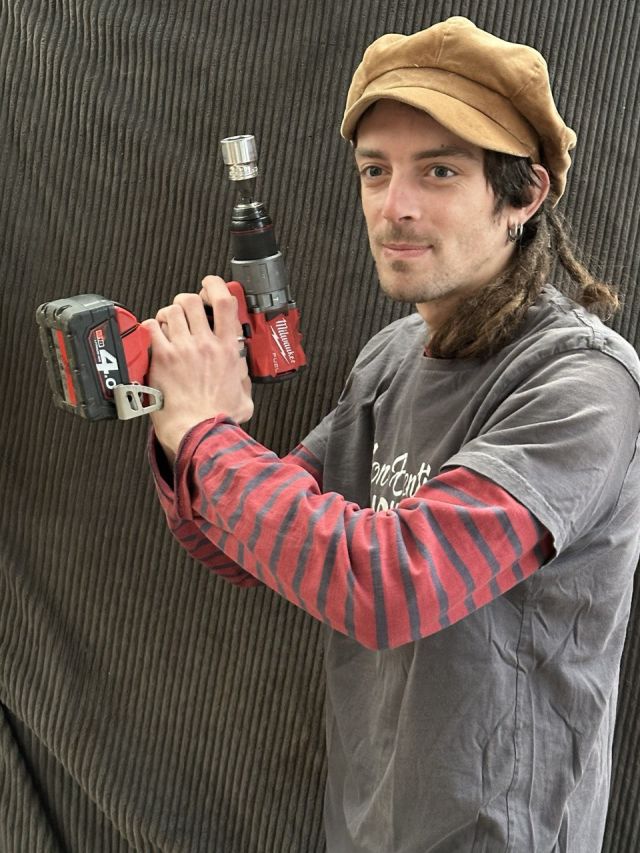
-
Marion Balsaux
Project Manager (Moderate Omnivore with a Frugivore Tendency)
Her responsibilities are as varied as a Belgian cheese stall: a bit of everything...
In another life, she was an octopus. While holding a phone in each hand to handle part of the distribution, with her six other arms, she manages communication, accounting, secretarial tasks, archiving, and plays the bagpipes... Really, she’s not big, a bit soft, but she does a lot.diffusion[AT]lesroyalesmarionnettes.be
